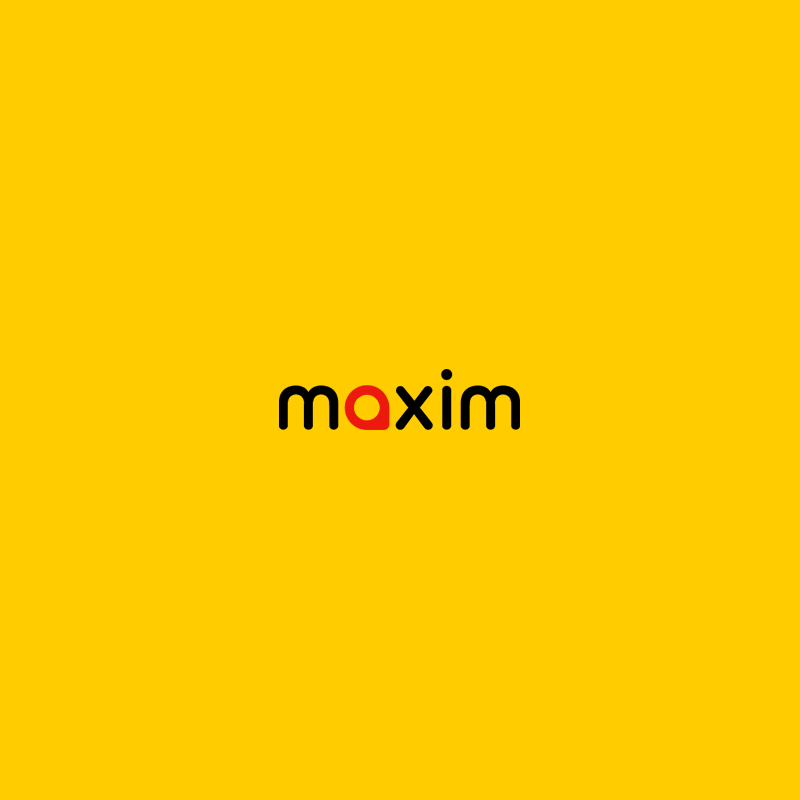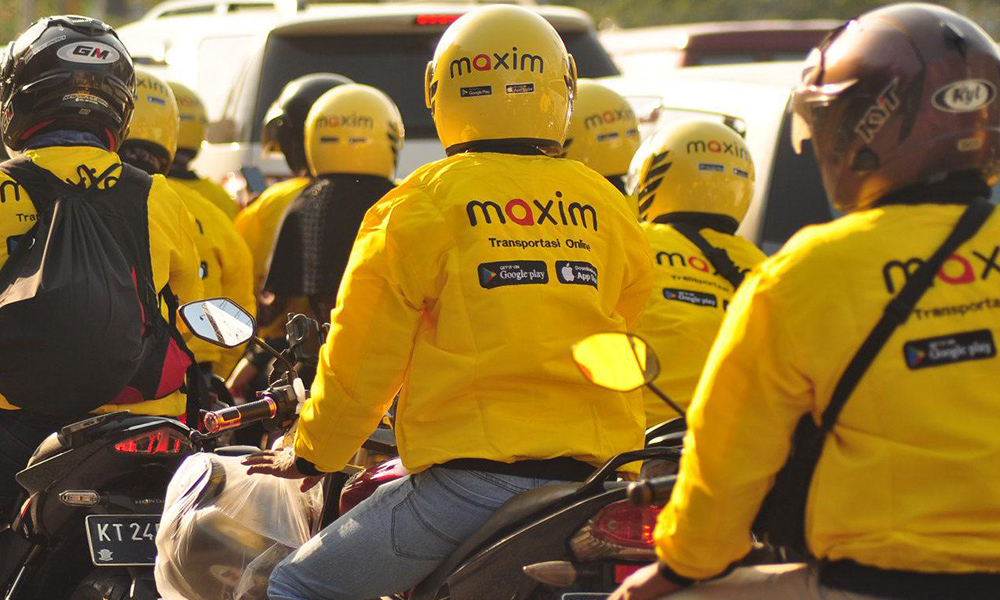
'The brand name 'Maxim' may not sound too familiar to most people in Indonesia, if compared to Gojek and Grab.
But the ride-hailing company that has been around since 2019 in the country, is brave enough to enter a battle that is already conquered by the duopoly Gojek and Grab, by offering cheaper fares.
Founded in 2003, the ride-hailing company began as a small taxi ordering service in Shadrinsk, a small town in Kurgan Oblast, Russia. It aims to improve the interaction between drivers and passengers, by providing user-oriented services.
According to its website, "our solutions, which are based on an analysis of the transportation market, allow us to offer you profitable term."
For users in the archipelago country of the Southeast Asia, Maxim offers services like ojol or motorcycle taxis, regular taxis, delivery, life (cleaning, massage and spa, and laundry), as well as cargo.
"Our mission is to continuously improve the interaction between our users, and help people move towards their goals."
But by entering Indonesia, Maxim is met with controversies, as well as protests from riders of Gojek and Grab.
In some cities, ojol drivers held protests, asking the government to level the prices of online on-demand taxis.
Since Maxim started offering cheaper fares than both Gojek and Grab, the ride-hailing from Russian simply disrupts the competition.
"Even though Maxim has complied with the government regulation of applying a minimum price, this is still a problem for us. So, our demand is to ask for equalization of prices in all online motorcycle taxis,” said Triyono, a member of the Serang Unified Ojol at the Transportation Agency of Serang City.
He argued that the price leveling should stabilize passenger interest. No party should overpower others.
"As a follow up, Maxim has to increase its price or Gojek and Grab should decrease their price. That will be discussed again by the Transportation Agency, this struggle will not immediately pass through a long period, be patient," he added.
"They promised to communicate with us. If within one week our demands do not continue, then we will hold another demonstration," he said.

Ride-hailing business is an alluring business. There will be no end to the demand of such services, despite 'COVID-19' coronavirus pandemic.
While Maxim can help break the duopoly by demanding a more competitive market, the company may find it difficult to shift the dominance of Gojek and Grab.
Not only that both Gojek and Grab have armies of drivers, the two dominate the ride-hailing market in Indonesia, also because they offer several points that are superior than others.
For example, both Gojek and Grab have integrated their services to fintech services popular Indonesia. Both have also planted a strong foundation to the society, by planting their roots deep by embracing the Indonesian culture. The two have also helped many merchants throughout the nation, providing the lifeline to many small businesses
To shift the dominance of Gojek and Grab, Maxim has a lot to do.
It needs to entice users, appeal merchants, lure in more drivers and partners, and survive the pandemic by simply giving more than the competition can, but without disrupting the already-stable market.
Besides Indonesia, Maxim also has presence in Azerbaijan, Armenia, Belarus, Bulgaria, Georgia, Italy, Kazakhstan, Kirghizia, Malaysia, Mongolia, Republic of Cyprus, Tajikistan, Uzbekistan, Ukraine, Montenegro, and Czech Republic.
It should be noted that besides Maxim, there is also another ride-hailing competitor in Indonesia called Anterin.
The online transportation service is known to have been acquired by MNC Group earlier this 2020.